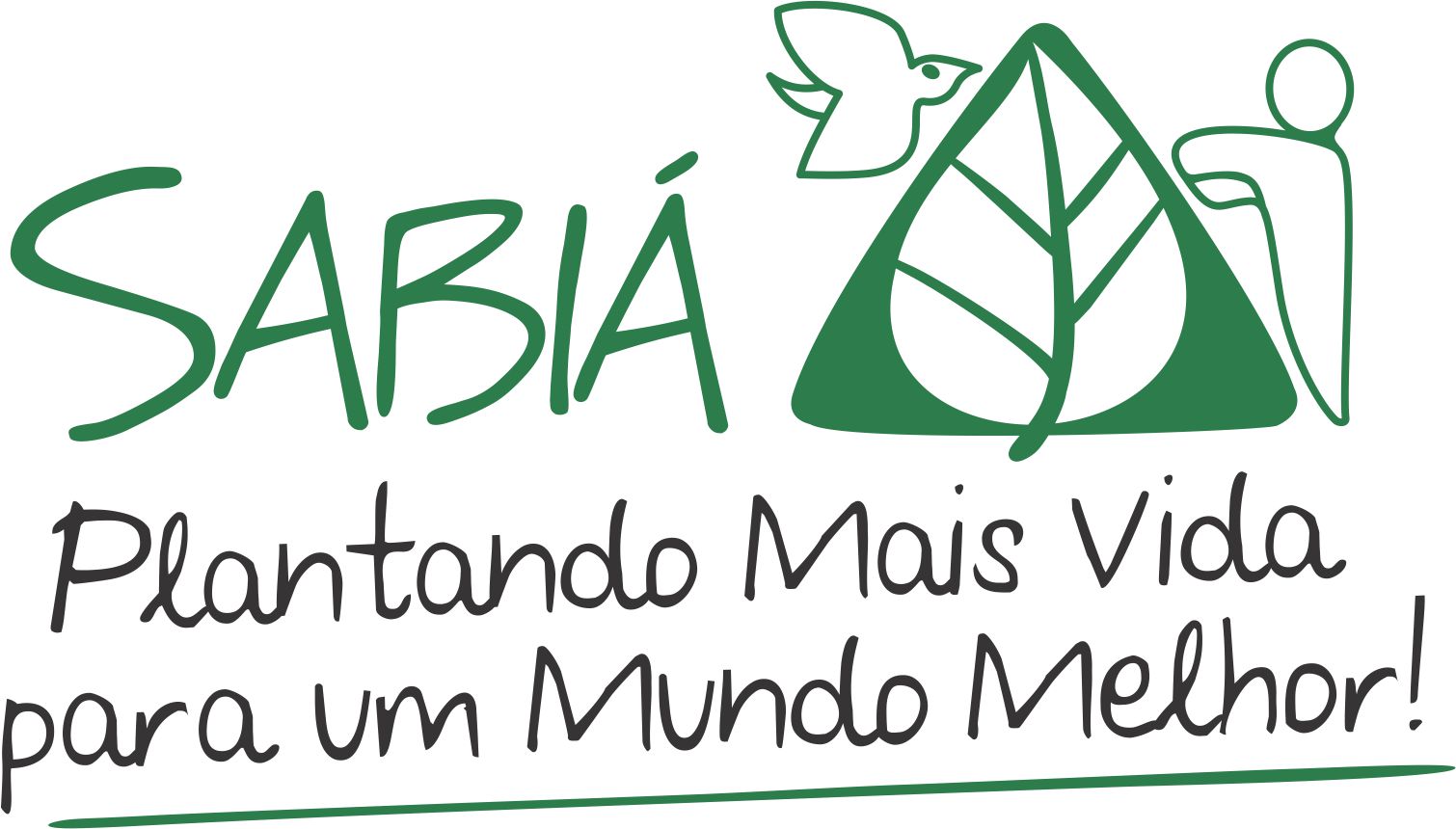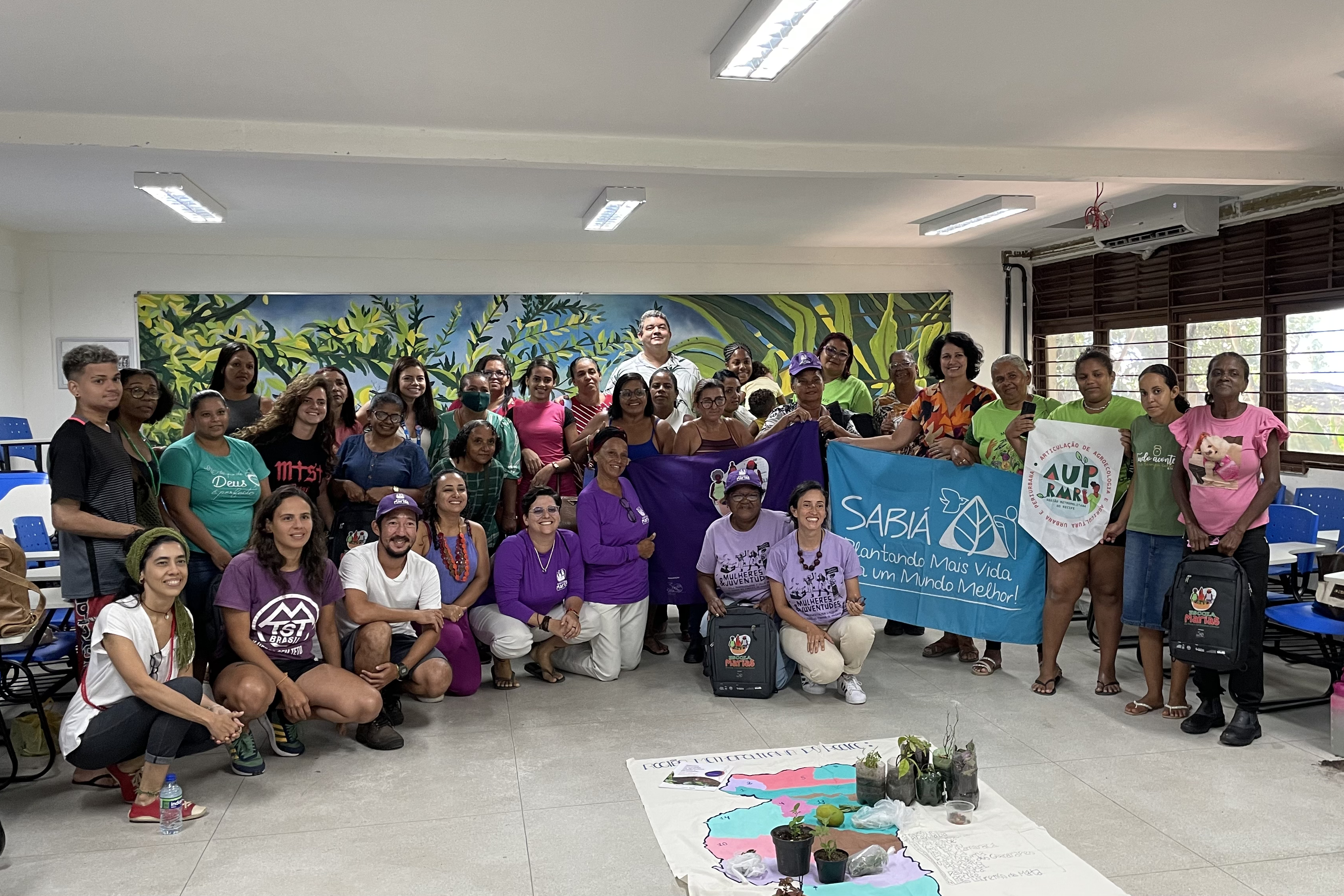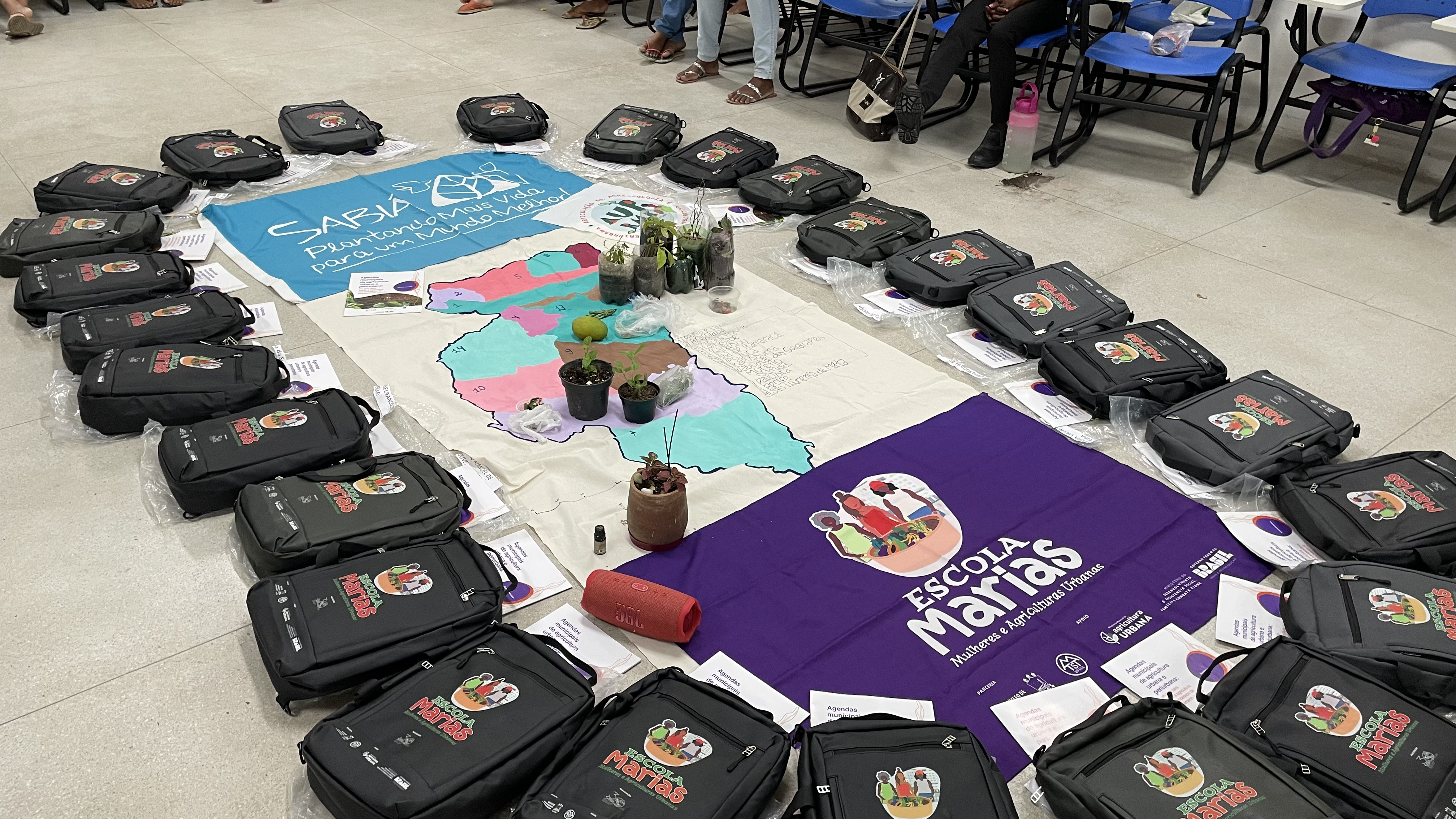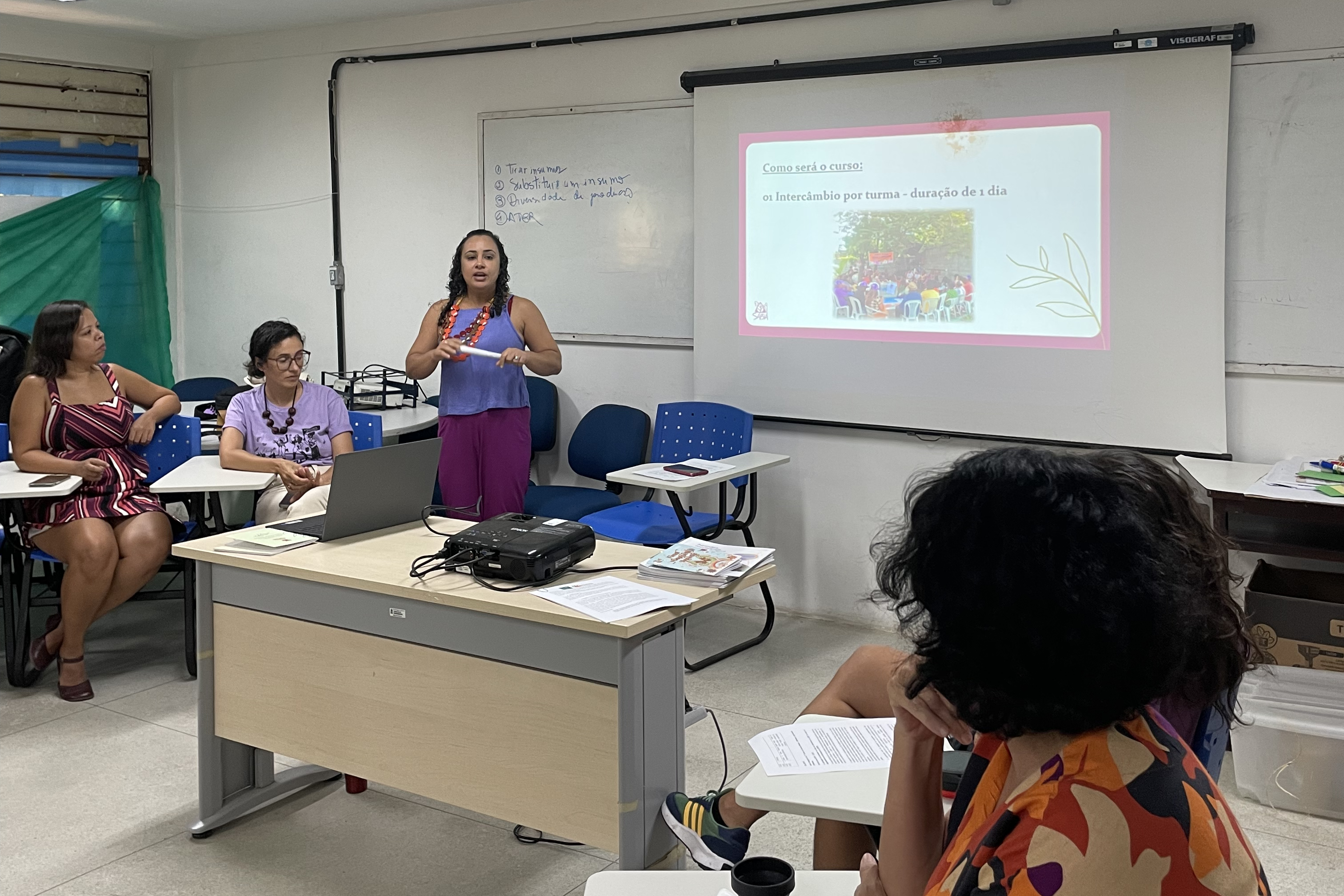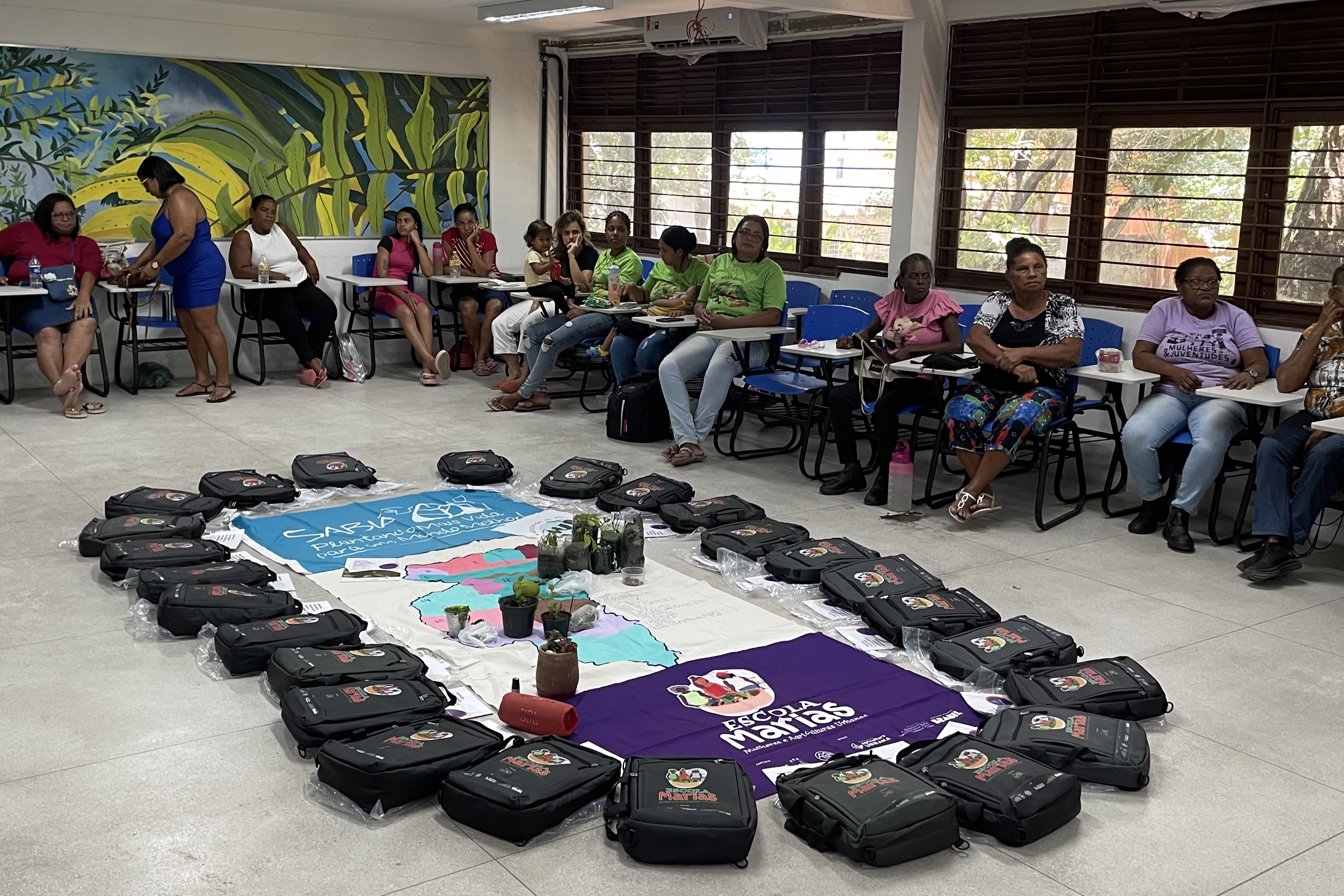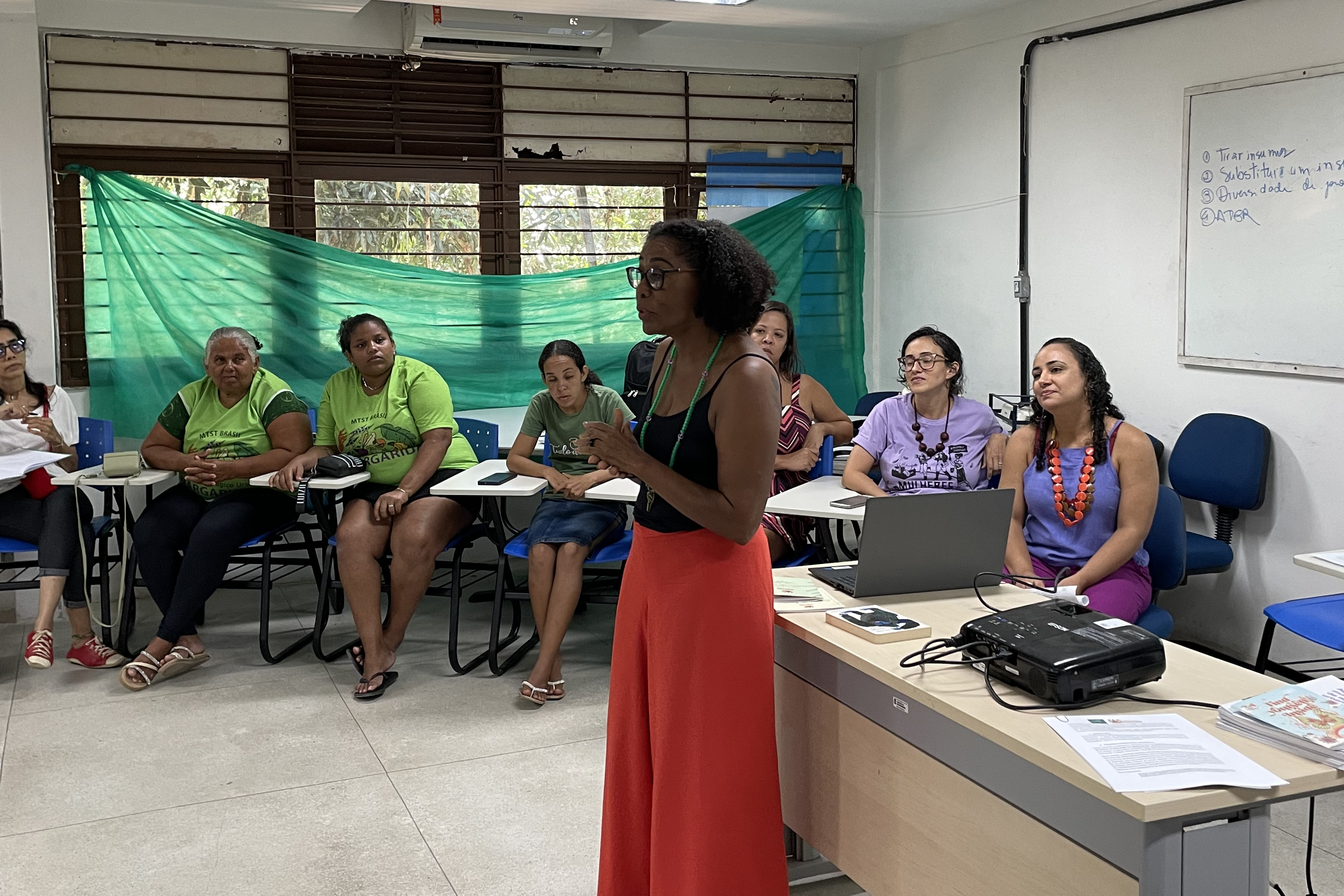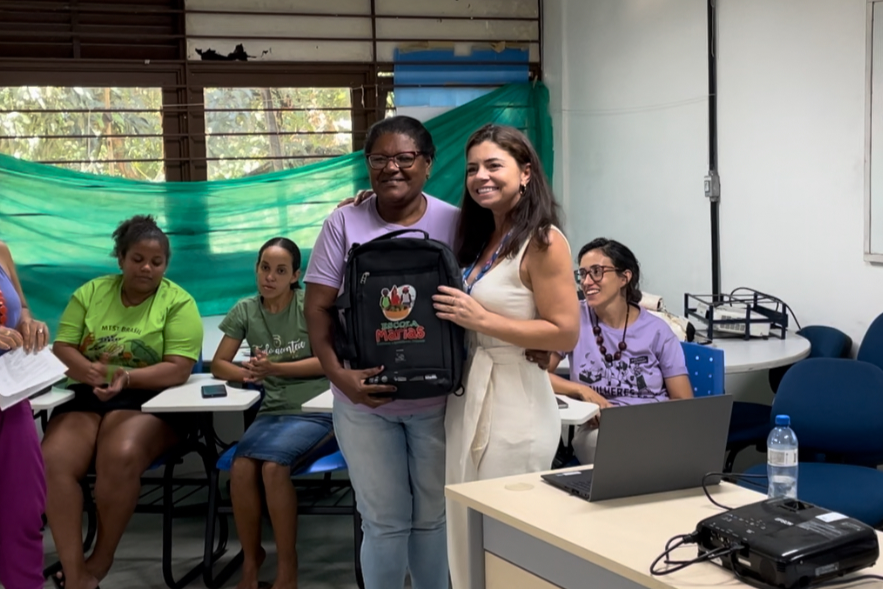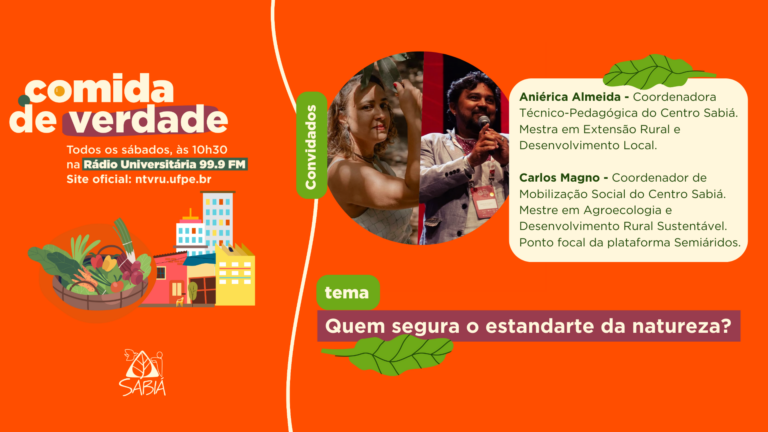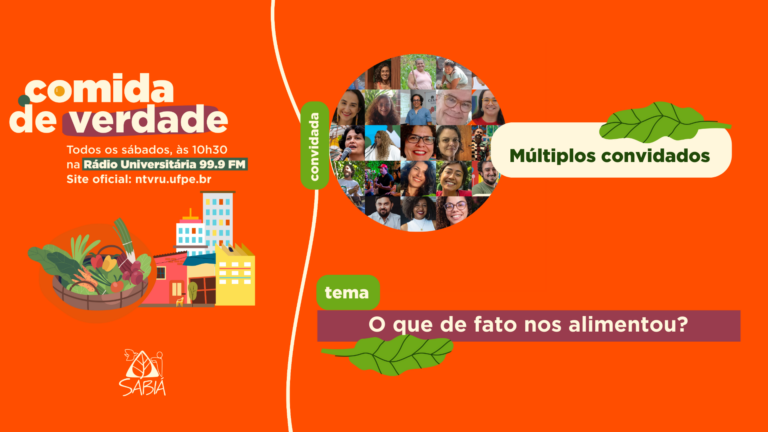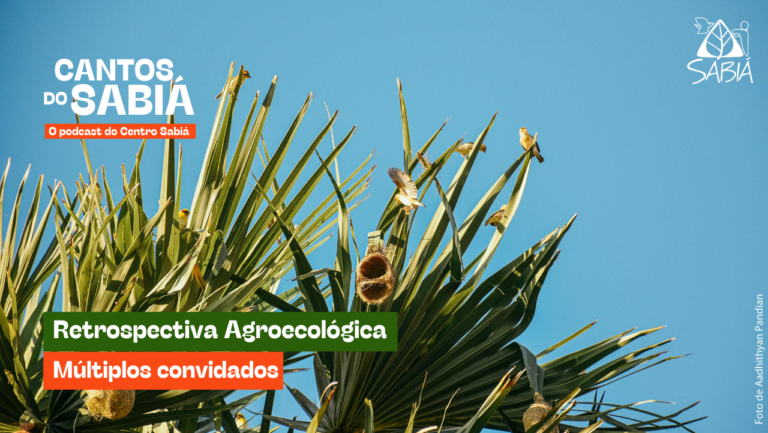Inaugural class of the Marias School marks the start of the second class
Bárbara Bittencourt
Sabiá Center Communication Intern
Last Tuesday (29), the Department of Education at the Federal Rural University of Pernambuco (UFRPE) hosted the inaugural class of the second class of the Marias School – Women and Urban Farming, a Centro Sabiá project in partnership with the Agroecology and Peasantry Center (NAC) and the UFRPE Dean’s Office for Extension, Culture and Citizenship, the Homeless Workers’ Movement of Pernambuco (MTST) and the Ministry of Development and Social Assistance, Family and Fight against Hunger (MDS).
The event recalled the experience of the first class and presented the schedule of classes through the speeches of Aniérica Almeida, technical-pedagogical coordinator of Centro Sabiá, and Maria Cristina Aureliano, general coordinator. In addition, Juliana de Carvalho, a representative of the MTST, and José Nunes, coordinator of UFRPE’s Agroecology and Peasantry Center, shared their perspectives on the importance of urban agriculture and the project for strengthening women as a community.
The 25 new students also learned about the ABC of the Marias experience, carried out at the Horta Dandara, in Olinda, with Professor Aurenice Lima (UFPE). The initiative was born out of the difficulty some of the women farmers had in reading the project materials, demonstrating the transformative and expansive nature of the Marias School.
The program ended with a talk by Kelliane Fuscaldi, coordinator of the MDS Urban and Peri-urban Agriculture Program, on federal public policies for urban agriculture and future prospects for the sector. According to the coordinator, attending the event was a fortunate opportunity because
“I think the project presented by the Sabiá Center is totally innovative, unlike anything we’ve ever done before. We’ve worked on a variety of projects, from acquiring inputs and vehicles to setting up vegetable gardens, but this idea of training people who already work in urban agriculture is very innovative. I believe it will bring many good results. It already is.”
Horta Margaridas farmer Agnalda da Silva, a student in the recently graduated class, also expressed her expectations: “I came here because I want to learn more. To learn how to plant and harvest. I used to plant, but I didn’t know how. I tried a lot to plant tomatoes and I couldn’t, and now I’m learning everything, we’ve already harvested various fruits and vegetables in the garden. Now I’ve come to college to learn even more and pass it on to my friends,” she said.
The new class is made up of women from various urban and peri-urban gardens in the region, including Horta Sonho de Viver, in the community of Fazendinha, Boa Viagem; Horta Margaridas, in the neighborhood of Jiquiá; and the Vila Santa Luzia Community Kitchen, in Torre, Recife. Also taking part are women from the Dandara Popular Agroecological Vegetable Garden in Peixinhos, Olinda, and the Quilombo Onze Negras Vegetable Garden in Cabo de Santo Agostinho.
The 260-hour extension course is divided into two main modules: Food Production and Food Processing, as well as practical activities in community gardens led by the students. The basis of the school’s teachings was built according to the students’ reality, with a view to sharing their ancestral knowledge combined with agroecological techniques with other communities. Based on this, the Sabiá Centre systematized the main information in two booklets launched at the inaugural class: the Marias Booklet – Good Practices and Urban Agriculture and the Recipes Booklet.
According to Maria Cristina Aureliano, “the first class, like every first time, is one of experience, of adjustments, of fine-tuning the methodology and the material itself. We are now entering this second class of the Marias School much stronger, with more refined material and methodology. In the first class, it was time to write and test the booklets, and now they’re printed”. The material will also be made available in podcast format for women farmers who have difficulty reading.
The general coordinator of the Sabiá Center added: “May two more classes come and may this school continue in the future. It’s been a very powerful experience, especially for the women. They are satisfied and enjoying it, leaving with a lot of knowledge. But they are also very empowered and aware of the value they have and the importance of their work for food production, for the communities and for structuring and strengthening urban agriculture here in the city of Recife.”
Nothing found.

